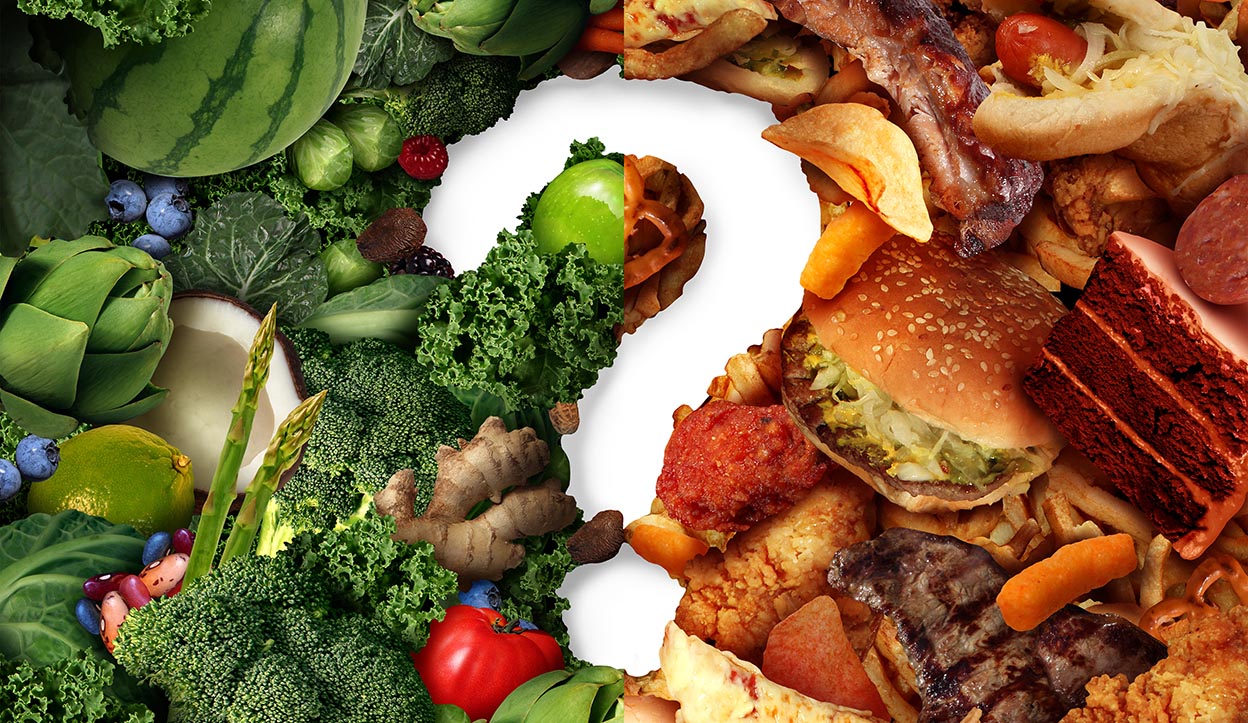Before I get into the meat of this, let me just first say that I don’t like telling anyone what to eat. It negates our free will over our own food choices.
Nevertheless, I get this question all the time. But, listen up, People: Good nutrition is a lifestyle. A journey. Everyone’s destination is different. Please talk to your doctor first. Please also understand that this is an ideal list; don’t run to the store and get all the things if your body isn’t ready to receive it. Slow and steady wins the race.
All that being said, there are a few things to include as you embark on this adventure.
Water. Water is the most important nutrient. Without water, nutrients cannot get to our cells fast enough. Water also helps your body regulate blood sugar. Make sure you are getting about 70oz of water per day, but please discuss this with your doctor first.
Greens. Make sure you are eating 1-2 cups of cooked leafy greens a day. Leafy greens are filled with antioxidants, which combat inflammation. They are also a great source of fiber, which helps move things along in your body and clear out all the junk your body might be holding onto. Leafy greens also have vitamin A, B, manganese and potassium. Leafy greens support your liver, too, which, for women is crucial in hormonal functioning. Sources: kale, bok choy, Brussel sprouts, broccoli, spinach.
Protein. Good quality is essential for our body, because our body cannot make protein. Protein builds tissues. Protein provides the structural integrity for organs, enzymes, and immune functioning. Don’t skimp on the protein! Good sources of protein are fatty fish like salmon; grass fed meats; pastured chicken; pastured eggs; and legumes.
Eat the rainbow. As much plant variety as possible! Making a salad with vegetables that represent the colors of the rainbow is an excellent way to get all the phytonutrients your body needs.
Other considerations for women
Berries. 1 cup of berries a day is optimal. Berries have a ton of antioxidants and provide a good amount of fiber for proper elimination. Organic is best. You can save money on organic berries by buying them frozen. Wild blueberries that are not organic are also great and super yummy. Making a smoothie or berry sorbet with them is a sweet treat.
Flax seeds. Flax seeds have essential fatty acids, which support skin, hair, and nails. Fatty acids also support cellular integrity, giving your cells the appropriate functioning to absorb the nutrients. Flax seeds have lignans, which help with elimination. About ½-1 T a day, freshly ground, should do the trick.
References
Romm, Aviva. Top Ten Foods and Herbs to Support Detoxification. Retrieved from https://avivaromm.com/detox-every-day/.
Nutritional Therapy Association. Basics of Nutrition Student Guide. (2020). Retrieved from https://nutritionaltherapy.instructure.com/courses/202/pages/bon-%7C-core-reading?module_item_id=12163.
